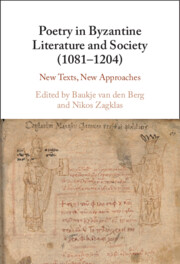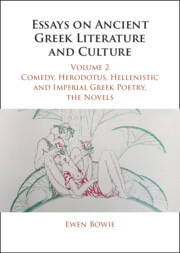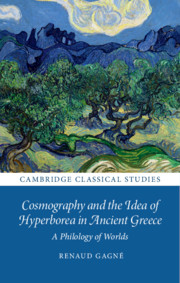Refine search
Actions for selected content:
5 results
AT LAST SPOKE DIOMEDES: DECORUM IN THE ILIADIC ASSEMBLY
-
- Journal:
- The Classical Quarterly , First View
- Published online by Cambridge University Press:
- 23 May 2025, pp. 1-12
-
- Article
-
- You have access
- Open access
- HTML
- Export citation

Poetry in Byzantine Literature and Society (1081-1204)
- New Texts, New Approaches
-
- Published online:
- 17 October 2024
- Print publication:
- 31 October 2024

Essays on Ancient Greek Literature and Culture
-
- Published online:
- 10 October 2023
- Print publication:
- 27 July 2023
Introduction to Volume II: Comedy, Herodotus, Hellenistic and Imperial Greek Poetry, the Novels
-
- Book:
- Essays on Ancient Greek Literature and Culture
- Published online:
- 10 October 2023
- Print publication:
- 27 July 2023, pp 1-25
-
- Chapter
- Export citation

Cosmography and the Idea of Hyperborea in Ancient Greece
- A Philology of Worlds
-
- Published online:
- 08 May 2021
- Print publication:
- 22 April 2021
